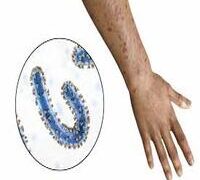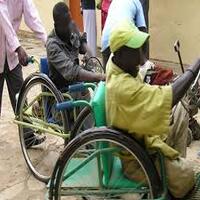“The Disability Act has only been adopted in 19 out of the 36 states in Nigeria and, therefore, has the force of law in only those 19 states.”
The states that have domesticated the Act are Lagos, Kogi, Kwara, Nasarawa, Niger, Plateau, Bauchi, Jigawa, Kaduna, Kano, Sokoto, Zamfara, Abia, Anambra, Cross River, Edo, Ekiti, Ondo, Oyo, and Enugu.
The report lamented that the PWDs in the remaining 17 states are without legal protection from discrimination.
Last year, the Centre for Citizens with Disabilities demanded that Nigerian states yet to domesticate the Discrimination Against Persons with Disabilities (Prohibition) Act should do so, four years after the law was passed at the national level.
The Executive Director of CCD, David Anyaele, said, “We are calling on Akwa Ibom, Adamawa, Bayelsa, Benue, Borno, Delta, Ebonyi, Imo, Ogun, Osun, Katsina, Kebbi, Gombe, Rivers, Taraba, and Yobe governments to demonstrate that the lives of persons with disabilities matter by adopting the National Disability Law.”
According to the Agora Policy report, PWDs faced a high level of discrimination due to the widespread practice of “ableism”, a social prejudice against them based on the belief that physical abilities were superior.
To foster greater inclusion of PWDs, the report proposed several recommendations, including addressing data gaps, sensitisation, and knowledge building, mobilising states to adopt the Disability Act, promoting its implementation, and collaborating with Organisations of Persons with Disabilities and Civil Society Organisations to develop an action plan.
It further detailed, “The National Bureau of Statistics and other critical stakeholders should address the data gap by ensuring robust disaggregation based on the number of PWDs per location, demographic distribution, type of disabilities, and specific needs.”
The report highlighted the need to promote the implementation of the Disability Act at all levels, noting that while the Act had several provisions to protect the rights of PWDs and imposed sanctions on offenders, cases of discrimination were rarely pursued.
SOURCE: PUNCH





































